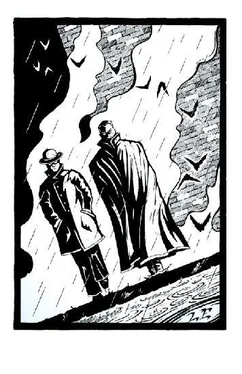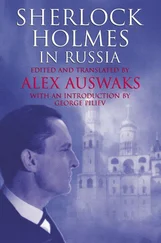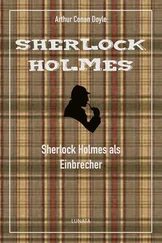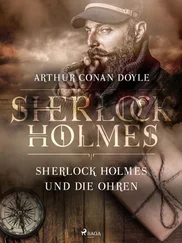“No, whatever happened to him, it happened quickly. There are no signs of disorder in the kitchen, no signs of a struggle of any kind. He fled his death along this hallway, but couldn’t move fast enough.” Brabbins went slowly down the hallway and onto the stairs.
“He went up the stairs, and he was careless, knocking over the piles of books and paper, but why? What was up here that he thought might help? Where was he going?”
“The study?”
“Yes, but why ? Why there and not the bathroom or the bedroom? Why the study?” Their discussion had taken them to the room in question, and Brabbins stepped in, gesturing for Swann to follow. “Tell me what you see.” Swann followed, clearly reluctant.
Although the body had been removed the man, Holmes, was still a presence in the room. These were his papers and books, his curios on the shelves in front of the books, his tobacco and his pipe on the desk. This was his space, and Brabbins knew that he and Swann were intruders here.
“It’s a study,” said Swann.
“Good,” said Brabbins. “Tell me more. Tell me what you see. ”
“It’s messy, like the hall. Lots of things. How a person could work here, I don’t know. How could you tell where things were? There’s piles of newspapers, the desk is covered in manuscript sheets with writing on, there are books open on the desk and magazines all over.”
“Very good. Go on.”
“There’s a picture on the desk, the only one I’ve seen in the house, of a man with a moustache. He’s got a doctor’s bag at his feet and a revolver in his hand. There’s a pipe on the desk and more papers on the floor. They’re crumpled, as though he pulled them to the floor when he fell. Some of them are bound together. There are matches loose on the desk and tobacco on the floor.”
“Did he decide to light a pipe for himself, one last smoke in his death throes, do you think?”
“No,” said Swann, his voice defensive, and for a moment Brabbins wondered if he had gone too far. No matter. “The tobacco’s fallen out of his pouch, or spilled when he went for the matches. There’s none in the pipe or near it.”
“Well done, Constable. Please, continue.”
“I don’t know what else to say,” said Swann. “I can’t see anything else, I don’t know what you’re looking for. There’s pine needles on the floor with the papers and tobacco, and some old wood and burlap. It looks like he tried to fill his smoker but dropped it before he could.”
“Smoker?” asked Brabbins, startled. “What’s that?”
“The tin,” said Swann in a tone that was somewhere between wary and disbelieving; it was either so obvious to him that he was worried he was wrong, or it was genuinely obvious and he couldn’t understand why Brabbins couldn’t see it. “It’s smoker fuel. Look, the smoker’s under the desk.”
“Smoker?” said Brabbins again. “You mean his pipe?”
“No, that,” said Swann, pointing to a thing that looked like a lantern with a kettle funnel welded to it, lying on its side under the desk. “It’s a smoker. You put needles and wood and burlap in and burn it, and it makes smoke.”
“Why?” asked Brabbins, mystified.
“You need the smoke,” said Swann, “to calm bees.”
The parlour was filled with piles of concertina files, three or four deep from the walls and to the height of perhaps five feet, tied with cord or ribbon, as though to stop them bursting. Some were old and some newer, the corners of the files less worn and the ribbons less dull. Experimentally, Brabbins opened one of them and withdrew sheets at random. The first one was a handwritten letter.
Dear Mr. Holmes
My brother has been vanished these past six months and I suspect he may have come to a terrible end at the hands of his wife, a selfish and unpleasant woman. I know you don’t do your investigations any more, but surely you can make an exception to help bring a vicious harridan to justice and give my family some peace?
I pray that I will hear from you soon.
Yours in God
Bernadette Murray (Mrs.)
There was a Cheam return address on the letter, and at the bottom in a different hand was written No . The other sheets Brabbins withdrew were similar: requests to help find missing family members, to solve robberies, to discover the whereabouts of missing wills. One even asked Holmes help in finding a missing pet, much loved and missed and Oh Mr. Holmes if you could see my child’s face you would surely be unable to resist our request for your assistance. The last one Brabbins looked at was typed, on paper headed with the insignia of the Manchester Constabulary. Dear Mr. Holmes, it read, We have a most difficult series of violent attacks and would request your assistance in solving them . Brabbins stared around the hundreds of files, thinking that if each contained the same as this file, then that was thousands upon thousands of requests, more and more arriving daily. What had Swann said? That he received a lot of post? And he read all of them; the repeated handwritten No told Brabbins that. My God, he thought, if this is what each day brought him, no wonder he tried to seal himself away .
Naked, Holmes’ corpse lay on its back on the metal table in the morgue whilst Rivers, the coroner, talked and pointed. “It’s not technically poison because he didn’t ingest it,” he said, “so it’s venom, although I don’t suppose it makes much difference to him now, does it? It was administered mostly to the flesh of the face and hands, which explains the amount of swelling and tissue damage in those areas.”
Rivers was a GP, he had told Brabbins, called in to help in those rare incidents when there was a need for a medical opinion on a corpse. The morgue was tiny, little more than a cupboard, tiled a pale, sickly green that reflected the two men as they moved around the body, their images hovering like vapor at the corner of Brabbins’ eye. It smelled of harsh soap and embalming fluid and the loose, wavering scent of flesh that was rotting despite the chill. There was another odor emanating from the body, the one that Brabbins had first come across in Holmes’ study, bitter and cloying, yet oddly sweet.
Holmes must have been tall and imposing in life, thought Brabbins. Prostrate on the table, though, he was shrivelled and splayed, his belly a sliced and yawning cavity, his flesh sagging back from his bones like an ill-fitting suit. The swelling of his face and hands made him look clownish, a caricature of the aquiline man that he had been in life. The puffy flesh had deflated slightly, and in relaxing and dropping away, the skin had pulled back from both of the man’s eyes, leaving their bloodshot gaze focussed on a point somewhere beyond the ceiling of the mortuary in rapt, cold attention.
“I haven’t identified the poison yet,” said Rivers. “I may not be able to. If you want a theory, it was smeared on something, or it was in something, and then his assailant attacked him, stabbing at him. At his face and hands, mainly, although there are some punctures on his neck and some on his lower arms.” Rivers held up his hands, nodding at his cuffs as they pulled back from his wrists, and said, “Defensive wounds, I’d imagine. The weapon was thin and sharp, probably a needle. It may even have been a hypodermic, given the depth of some of the punctures in the flesh.”
“Thank you,” said Brabbins. He leaned in close to the corpse, looking at its stretched, sloughing skin. There were even wounds in the swept back, thinning hair, he saw, areas of scalp where the poison had caused the man’s head to bulge and swell. His tongue had collapsed back into his mouth, lay curled and dry in the shadowed depths. Brabbins thought of the room full of pleading letters, of the person that this man must have been, and felt a wave of sadness wash over him. This had been a human being, a good one by all accounts, and someone had hated him enough to murder him, to slaughter him. Brabbins sniffed deeply, trying to lock the smell of the dead man and the sight of his bruised, distorted face deep in his mind; then he rose to go.
Читать дальше












